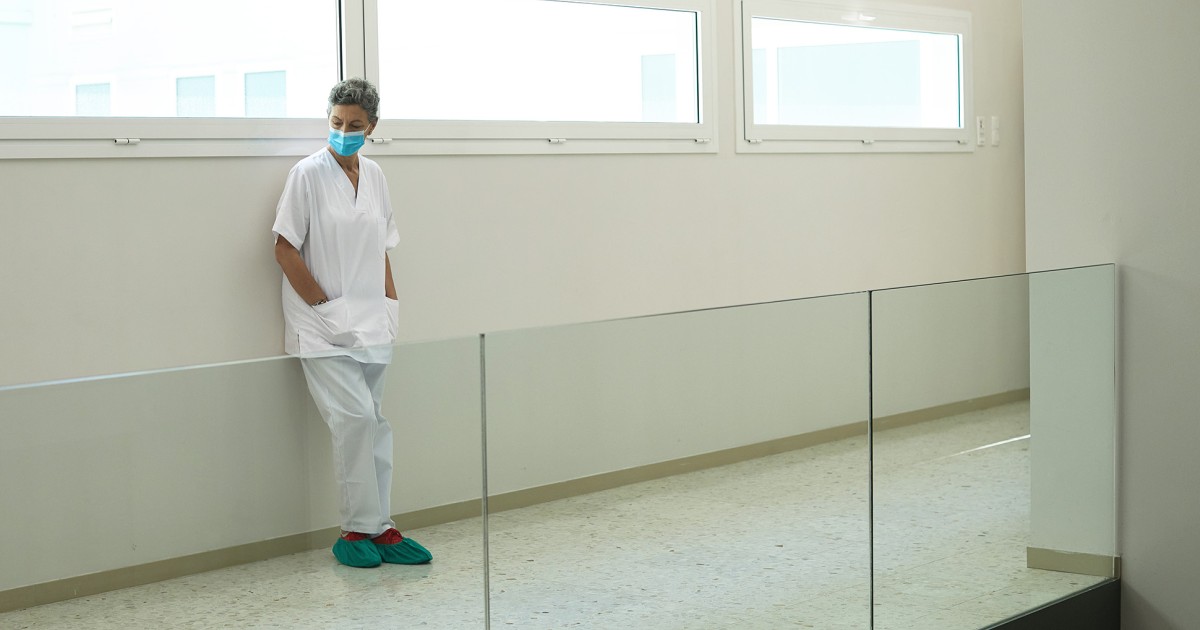The COVID-19 pandemic exacerbated already rising rates of burnout among American health care workers. A new Northwestern University study found learning and practicing skills that increase positive emotion like gratitude, mindful awareness and self-compassion helped improve health care workers’ well-being and reduce stress and anxiety.
“Even before COVID-19, health care workers were significantly challenged by the stresses of the job, and any tools we can give them to lessen that stress even a little bit is a win,” said corresponding author Judith Moskowitz, chief of intervention science in the department of medical social sciences at Northwestern University Feinberg School of Medicine.
But just like with any intervention — diet, exercise, addiction recovery, etc. — these skills only work if you practice them, Moskowitz said.
Burnout is strongly correlated with depression and anxiety, as well as a host of negative physical health outcomes and concerns. Additionally, for health care workers, it’s associated with reduced effectiveness in health care delivery and increased risk to patient well-being and medical errors.
Published in PLOS ONE, the study enrolled 554 health care workers in a five-week, online, self-guided intervention that targeted positive emotion with the goal of improving well-being. The intervention included eight skills that evidence shows improve well-being: noticing and savoring positive events, gratitude, mindful awareness, positive reappraisal, personal strengths, attainable goals and self-compassion.
More than half (52.8%) of participants who signed up to learn the positive emotion skills never logged in to complete any of the lessons. The 9% of workers who completed all five weekly skill lessons of the intervention improved significantly more on positive emotion compared to those who did not use the intervention.
When asked why they didn’t complete the intervention, participants pointed to logistical issues (i.e. not receiving the initial email to login to the platform or not recalling enrolling in the study). One participant said, “I totally forgot that I opted in and ignored the emails because of my busy schedule. I wish I made more time to participate as I intended. I would have loved to see if it worked.” Others found the daily reminders to practice the skills too demanding, saying once they missed a few lessons, “it seemed impossible to catch up and I lost interest, but would love to have an opportunity to participate again now that I understand the time requirement.”
Positive emotion skills can help health care workers well-being and reduce stress and anxiety, but, as with many interventions, only if practiced — something that can be difficult to find time for in their busy schedules. (One participant said, “An online module was just an extra thing for me to do on top of the billions of other tasks I had to do.”)

Constraints in the U.S. health care system can make it really hard for individuals to take any time for self-care.”
Constraints in the U.S. health care system can make it really hard for individuals to take any time for self-care.”
Moskowitz said future studies teaching this intervention may restructure the skill delivery to include an introductory session that summarizes all eight skills at the beginning, so participants know what to expect.
“We’d say, ‘Here’s a number of things you can try that have been shown to improve well-being for people experiencing all kinds of life stress. We’d like you to try them all because you don’t always know which ones work for you until you try them. Once you figure out which ones are your go-tos, make practice of those skills a habit,’” Moskowitz said.
Additionally, Moskowitz said the intervention is more likely to be successful if implemented in parallel with policy changes addressing health care systems-level factors in the U.S. that drive burnout, such as low staffing, limited childcare options and workday breaks.
“Constraints in the U.S. health care system can make it really hard for individuals to take any time for self-care, and that’s a big problem,” Moskowitz said. “While systemic and organization-level changes in health care are critically important to address the causes of burnout, health care workers also need individual-level tools that are easily accessible to help them cope with the stress of the job.”
1603 Orrington Avenue
2nd Floor
Evanston, IL 60201
(847) 491-5001
news@northwestern.edu
Get the latest news delivered to your inbox.
Sign Up Now
